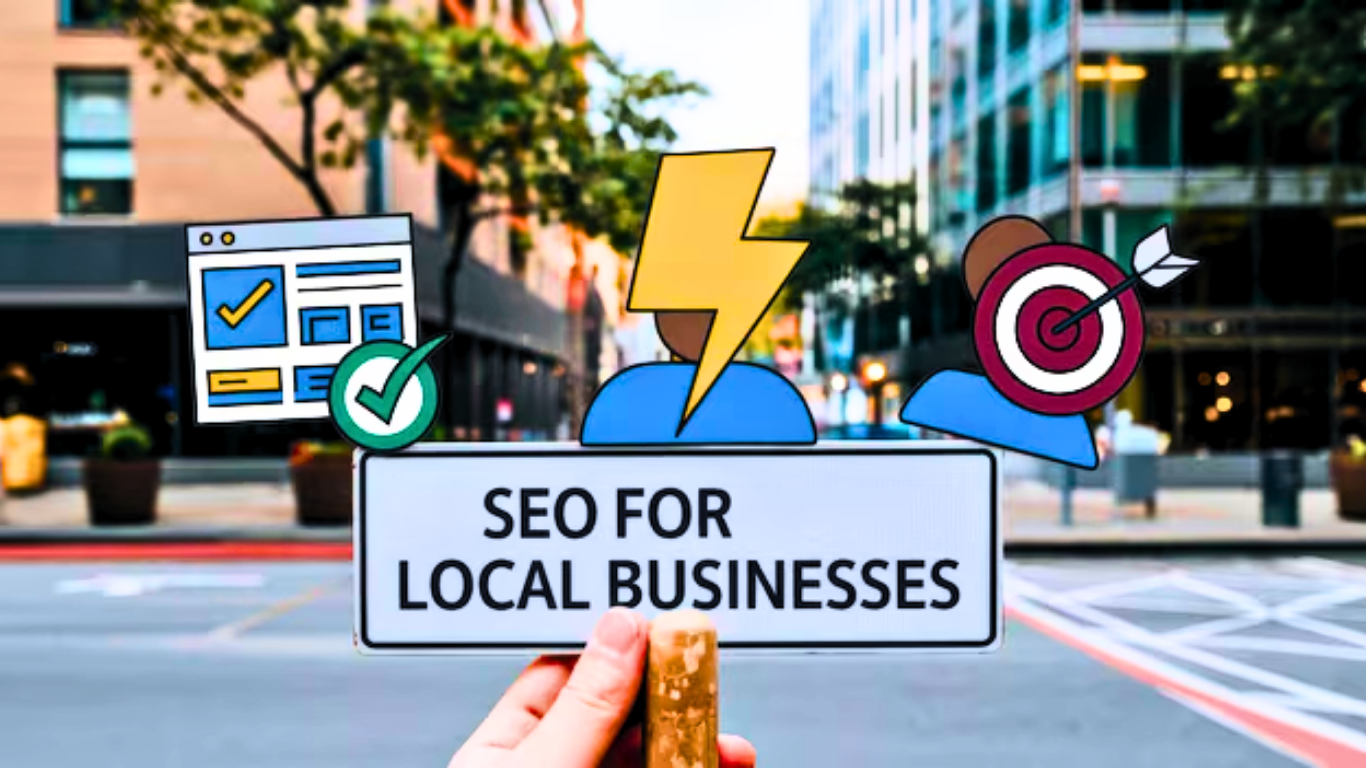With the rise of powerful AI tools like ChatGPT and Google’s search algorithm updates becoming increasingly AI-driven, many businesses and marketers are asking the big question: Will AI replace SEO?
The short answer is no—SEO won’t be replaced by AI, but it will evolve because of it.
AI for SEO is transforming how people search, how content is created, and how search engines deliver results. But rather than making SEO obsolete, AI is simply changing the rules of the game.
It’s helping marketers better understand user intent, optimise content faster, and deliver more relevant experiences.
In this blog, we’ll explore how strategies are reshaped for AI for SEO, what it means for your strategy, and how you can stay ahead in this new era of search.
Think of AI as your SEO Accelerator.
AI isn’t here to replace SEO; it’s here to make it faster, more intelligent, and easier. See how it is transforming things:
How AI Is Changing Keyword Research
Before AI, doing keyword research took hours. You had to open keyword tools, try different words, download big lists, and think of related topics on your own.
Now, with the development of AI for SEO, it’s much simpler:
- Ask tools like ChatGPT: “What topics does my audience care about?” and get helpful keyword ideas instantly.
- Brainstorm without using spreadsheets or complicated tools.
- Use AI tools made just for grouping keywords into categories (called keyword clustering).
- Upload a list of keywords, and AI will organise them for you, saving tons of time.
What this means for you:
You still need keyword tools for data like search volume and difficulty, but AI takes care of the slow, manual brainstorming part, so you can focus on creating great content faster.
How AI Helps You Create and Optimise Content
AI can now help with many parts of SEO that used to take a lot of time and effort:
For Content Strategy:
- Write full content briefs
- Create SEO-friendly meta descriptions
- Suggest internal linking ideas
- Build blog post outlines with headings
- Study competitor blogs to find content gaps
For Technical SEO:
- Spot and fix crawl issues
- Suggest ways to improve your website structure
- Create schema markup (special code that helps search engines understand your site)
- Run basic technical audits automatically
But There’s a Catch: AI Might Also Change How People Search
AI tools like ChatGPT are making people search differently. More people are skipping Google and using AI directly to get answers.
Some surprising numbers:
- 8% of Americans already use ChatGPT as their primary search tool (up from just 1% in June 2024).
- Use of AI search engines has grown 5x since January 2024.
- Experts believe that AI search will be the norm by 2028.
- Right now, marketers and tech-savvy people are leading the trend, but more people will follow soon.
Why this matters:
If fewer people are using Google, your website could get less traffic, even if you rank well. This is something SEO professionals need to watch closely.
Google’s AI Overviews Are Changing the Game
Google is already using AI to show answers directly on the search page—called AI Overviews. This means people might get what they need without clicking on your site.
Here’s how it’s affecting websites:
- Websites see 4x fewer clicks when AI Overviews show up
- 40% of users rarely click on links in AI Overviews
- If your site is listed as a source, you might get more clicks
- Traditional top search results are being pushed down the page
Because of AI for SEO, it’s making work easier and faster, but it’s also changing how people
search. To stay ahead, we need to use AI tools smartly while keeping an eye on how search behaviour evolves.
SEO isn’t dying, it’s transforming. And those who adapt will win. So, if you are those who want to win, let’s follow the strategies given below; this can be very helpful for you.
How to Optimize SEO for AI? Strategic Preparation for 2025
Focus on Today, Prepare for Tomorrow!
AI is transforming the way people search, but that doesn’t mean SEO is dead. The smartest thing you can do right now? Keep using SEO to your advantage today, while also getting ready for the future.
Why SEO Still Matters?
- Google is still powerful – Google remains a significant source of web traffic, with millions of users relying on it daily to find information, products, and services.
- Trusted brands still grow – Well-known websites continue to see steady results through SEO.
- Your audience isn’t leaving yet – If you’re in B2C (business to consumer), most of your customers aren’t using AI tools to search, at least not yet.
- Don’t give up too soon – Walking away from SEO now would be like quitting a gold mine just because it might run out someday.
5 Key Strategies for AI for SEO
Here is the core you are looking for the AI for SEO:
1. Build Strong Authority Online
AI tools and Google both want to show trustworthy content. So the more reliable and respected your brand is, the better your chances of being featured in search results, or even in AI answers.
How to build authority:
- Earn high-quality backlinks – When other trusted websites link to you, it boosts your credibility.
- Grow your brand – If people search for your business name, it tells Google and AI that you’re a known and trusted source.
- Publish original research – Instead of repeating what others say, share your data or findings.
- Get featured in the media – Being mentioned by popular sites or news outlets makes your brand look more trustworthy.
Goal for the future:
Don’t just aim to be #1 on Google. Aim to be the source that AI tools quote in their answers.
2. Focus on the Technical SEO That Really Matters
It’s easy to get lost in fixing tiny SEO issues that don’t help your rankings. Instead, focus on the core things that make a real difference.
What to prioritize:
- Make sure your site can be crawled and indexed – Search engines and AI need to be able to find and read your content.
- Keep your site fast – A good loading speed is helpful, but no need to chase perfection.
- Be mobile-friendly – Most users are on phones, and Google prioritizes mobile-first websites.
- Offer a great experience – Clean design, easy navigation, and helpful content still matter.
What to skip:
Don’t stress about minor technical errors that have little to no impact. Focus on content, backlinks, and your audience instead.
3. Shift from Keywords to Topics and People
AI search tools use long, natural questions instead of short keywords. So SEO is moving from exact-match phrases to broader topics and user intent.
What’s changing:
- The average Google search is around four words
- The average ChatGPT question is 23 words
- Many AI searches don’t follow clear “search intent” patterns
New ways to research content ideas:
- Talk to your customers – Ask them what they’re struggling with
- Explore online communities – Sites like Reddit or Quora show real questions people ask
- Look at support tickets – These reveal problems your audience regularly faces
- Use AI for brainstorming – Ask AI tools to list your audience’s pain points or common questions
4. Don’t Rely on Basic Info Content
Straightforward content like “What is SEO?” won’t get much traffic anymore—AI tools can answer those questions instantly. You need to create content that AI can’t easily replace.
What works now:
- Deep insights – Go beyond the surface with your analysis or opinions
- Firsthand experience – Share product reviews, case studies, and personal stories
- Decision-making content – Help people compare products or services
- Multi-source guides – Bring together info from trusted sources into one helpful piece
Focus on content that helps people make decisions, not just find basic facts.
5. Diversify Where Your Traffic Comes From
Putting all your focus on Google traffic is risky. AI tools, social platforms, and other channels are becoming primary traffic sources. It’s time to spread out.
Ways to diversify:
- Create free tools – Offer calculators, quizzes, or generators that bring people to your site
- Build an email list – You own it, and it’s not affected by algorithm changes
- Use video platforms – YouTube and similar sites are great for visibility
- Be active on social media – Meet your audience where they already spend time
- Start a newsletter – A direct way to stay connected with your audience
AI is shaking things up, but SEO is far from over. The best approach is to keep improving your SEO today while slowly adapting your strategy for the AI-powered future. Focus on building authority, understanding your audience, and creating valuable content that stands out in a world full of automation.
Implementation Roadmap for 2025
To stay competitive in the changing world of search and AI, here’s a step-by-step action plan for your SEO and content strategy in 2025.
Immediate Actions (Next 30 Days)
Start with foundational steps that bring quick improvements:
- Audit your current keyword strategy using AI tools
- Identify opportunities to build authority through backlinks and brand mentions
- Begin diversifying your traffic sources beyond Google
- Use AI tools to assist with content creation and basic SEO optimization
Short-Term Goals (3–6 Months)
Once the basics are in place, focus on strengthening your strategy:
- Conduct and publish original research or data to stand out from AI-generated content
- Secure media mentions and citations from reputable sources
- Create topic clusters that align with your audience’s interests
- Launch at least one alternative traffic channel (e.g., email list, video platform, free tool)
Long-Term Strategy (6–12 Months)
Build sustainable growth and authority that will last beyond algorithm shifts:
- Develop strong brand authority across multiple platforms
- Establish yourself or your brand as a thought leader in your industry
- Create unique, high-quality content that AI tools and platforms are likely to cite
- Build numerous traffic channels that can generate leads or revenue independently
Measuring Success in the AI Era
Traditional SEO Metrics to Continue Tracking:
- Organic traffic and keyword rankings
- Backlink growth and quality
- Mentions of your brand or content across the web
- Conversions from organic traffic
New Metrics for AI-Driven Search:
- Citations or references in AI-generated responses (e.g., Google’s AI Overviews, ChatGPT)
- Mentions of your brand or content across AI platforms
- Improvements in authority scores from tools like Moz or Ahrefs
- Percentage of traffic coming from non-Google sources (email, social, video, direct)
Is AI for SEO Worth It?
AI is both the most significant opportunity and the biggest challenge SEO has ever seen. The businesses that succeed in 2025 and beyond will be the ones that know how to use AI today, while also building strong authority, trusted content, and traffic sources that don’t rely on just one platform.
At Iynix Digital, we help businesses stay ahead by creating smart SEO strategies that use the latest AI tools and prepare for what’s coming next. It’s all about finding the right balance getting the most out of SEO now while getting ready for an AI-driven future.
One thing hasn’t changed: great SEO is still about giving real value to your audience. No matter how the tools evolve, that will always be the foundation of long-term success.



